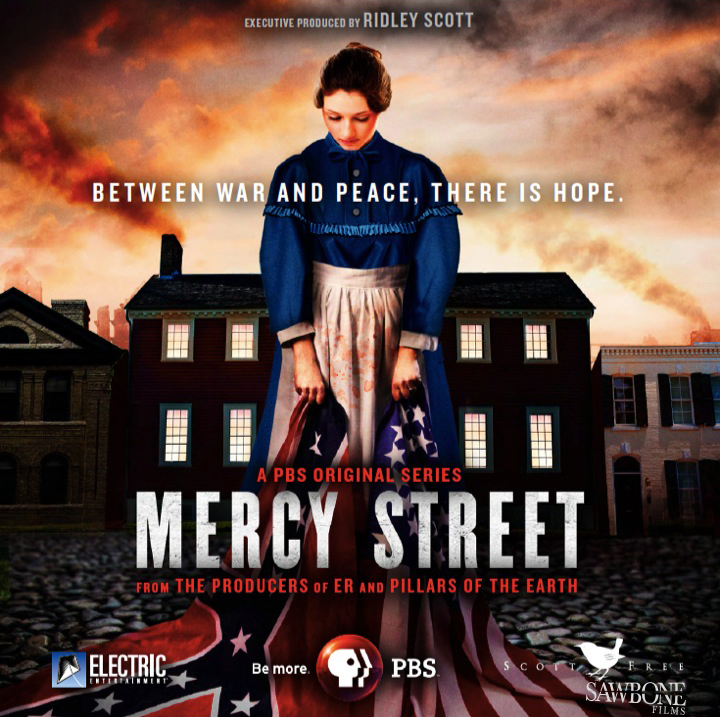
On January 17, 2016, PBS premiered their new Civil War Drama Mercy Street. This program, Set in Richmond Virginia, tells the tales of medical professionals during the time of the American Civil War. The setting of the hospital is a commandeered hotel that is being used by the Union Army to treat both Union, and Confederate wounded.
I liked the first episode and looked forward to the forthcoming episodes as the drama unfolds. I say drama because that is exactly what it is, it is a drama, not a documentary, and there is a difference between the two that should be obvious. As a drama, there is some artistic license that should be expected to make an interesting story so people will tune in each week. The initial response seems to be mixed with outrage to genuine pleasure; I think I fall somewhere in-between.
I am a living historian and as such I appreciate anything that gets people talking about history. I have seen posts on the various Social Media outlets from fellow living historians complaining about the costumes and one “thread counter”* posted 10 minutes into the program that he could no longer watch because of the costumes. Well, history has to be about more than just the costumes and if it is not then we have a very shallow and superficial view of history and that does a disservice to the actual people of history. The people in the story, whether real of fictionalized, deserve far more than complaints about whether or not the uniform is correct or a lady would have worn this or that hat.
What this program is attempting to do is tell part of the Civil War story that is not usually discussed, and that is the story about the unsung heroes, many of them civilians, who at great risk to their lives, tended to the needs of those wounded on both sides of the conflict. Viewers are given the opportunity to see firsthand, the thoughts of those involved and the internal struggles of Unionists treating the Confederate Soldiers and the constant reminders that as medical professionals they are to treat all patients regardless of the uniform they wear.
To those who dismiss programs such as these, for the reasons I mention above, I ask you to remember that what we do, present living history, is an attempt to start a conversation about the time frame that we portray, and I also remind you that any discussion about history is important so get down of your high horse and participate in the conversation.
I can appreciate any attempt to bring history into the lives of modern people who might otherwise not be interested, even if one person becomes interested because of programs such as this we should be grateful. In this day of revisionist history, we need to remind people that these events involved real people with real families and real struggles and they were not just people who dressed up for the weekend and camped out.
With all of that said I also can appreciate the need for historical accuracy and authenticity. As a living historian, I strive to present myself as a person would have lived during the time frame that I portray but the “thread counters” almost kept me out of the hobby altogether. Sure we strive to be as authentic as we can be, but the story should not be lost just because someone is not wearing the correct belt or they have on 21st-century glasses. The story is the important part here.
So I recommend that you tune in on Sunday nights and watch Mercy Street and make up your mind about the program.
*A thread counter is exactly that someone who counts the number of threads in your “costume” to make sure it is authentic. This will vary from people who give you the stink eye at an event to people who are outright rude to new and old people in the living history community.
